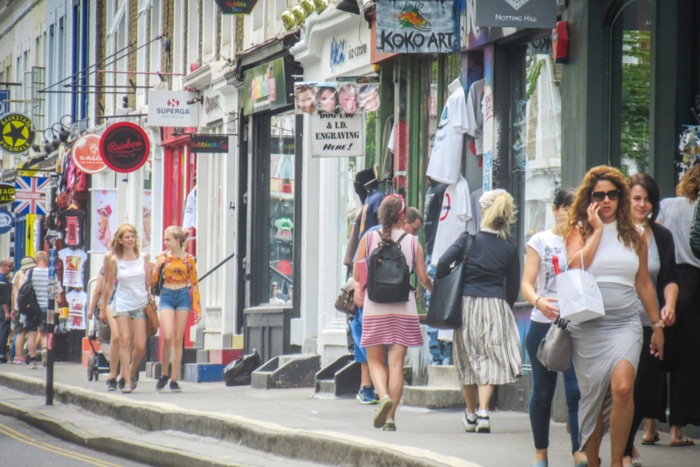// New report calls for more support for councils to shift city centre economies away from an over-reliance on retail
// City Centres: Past, Present and Future report also says high street is not dying
// Report also refutes belief that online retail is the main reason behind today’s challenges
A new report has highlighted how online is not the main reason for today’s struggling high streets while suggesting more support for councils is needed to shift city centre economies away from an over-reliance on retail.
The City Centres: Past, Present and Future report found that focusing on the struggles of certain high streets ignores the success of well-performing city centres, and that the “core” problem of insufficient footfall in city centres was actually due to a lack of skilled jobs.
It also said the main challenge for poorly performing high streets was not the internet, and refuted the belief that high streets were “dying”.
READ MORE:
The report came about after think tank Centre for Cities, in partnership with George Capital, mapped UK cities with the strongest city centre economies and identified their common features.
It found that successful city centres featured fewer shops, but were supported by “knowledge-based” office jobs – such as those in marketing, finance and law – which created a market for restaurants, bars and other leisure activities to thrive on the high street.
The report highlighted how several regional cities, such as Manchester, Birmingham and Liverpool, performed well in the last two decades thanks to their growing their city centre workforces.
At the other end of the spectrum, Newport, Bradford and Wigan had the most city centre vacancies, thanks to the common characteristic of too many cheap retail units and a lack of quality office space, restaurants, cafes and bars.
While the report said these struggling regions’ over-reliance on traditional retail meant they have struggled to compete with online shopping, it ruled out the internet as the main reason behind the challenges plaguing high streets.
Instead, it attributed it to the lack of skilled workers and demand to make the shift away from retail and towards high-knowledge and leisure services.
Centre for Cities urged the Chancellor to allow city leaders to access to the National Productivity Investment Fund – a £23 billion pot first announced in late 2017 aimed at increasing economic growth over the next six years – to invest in their city centres while offering them exemptions from commercial-to-residential conversions to protect valuable office space.
It also called for more investment in skills for cities’ residents is necessary to create the educated workforce that future city centres need to thrive.
“This research shows that it is not all doom and gloom on the high street, despite the headlines,” Centre for Cities chief executive Andrew Carter said.
“However future city centres are likely to look very different to today. We must remember that a successful high street is the result, not the driver, of a successful city economy and take a more holistic approach to regenerating city centres – including allowing councils to access infrastructure funding as well as money set aside for high street regeneration.
“Instead of trying to replace failed shops with more retail, investors and policy makers should focus their strategies on making struggling city centres attractive places to do business and spend leisure time – not just to shop.”
The reports comes after a string of administrations and CVAs in the retail industry fuelling a rise in vacancy rates.
Meanwhile, The High Street Report published late last year also urged the government to empower local leaders and communities to reinvent town centres through an “Upside Down Government” approach.
This entailed giving community figures the power to design and implement their plans for future town centres that recreate a community hub and reduced their reliance on retailers.
These community hubs would consist of leisure and social services sitting alongside retail and residential property.
The report was put together by a government-appointed panel of high street experts, chaired by Sir John Timpson, who were asked to advise on how ailing high streets could be saved.
Just before the new year, the Future High Streets Fund was officially launched after it was first announced in the Chancellor’s October Budget.
The £675 million fund will see local towns bid for their share, aiming to transform high streets into community hubs as per Timpson’s report.
Click here to sign up to Retail Gazette‘s free daily email newsletter
















